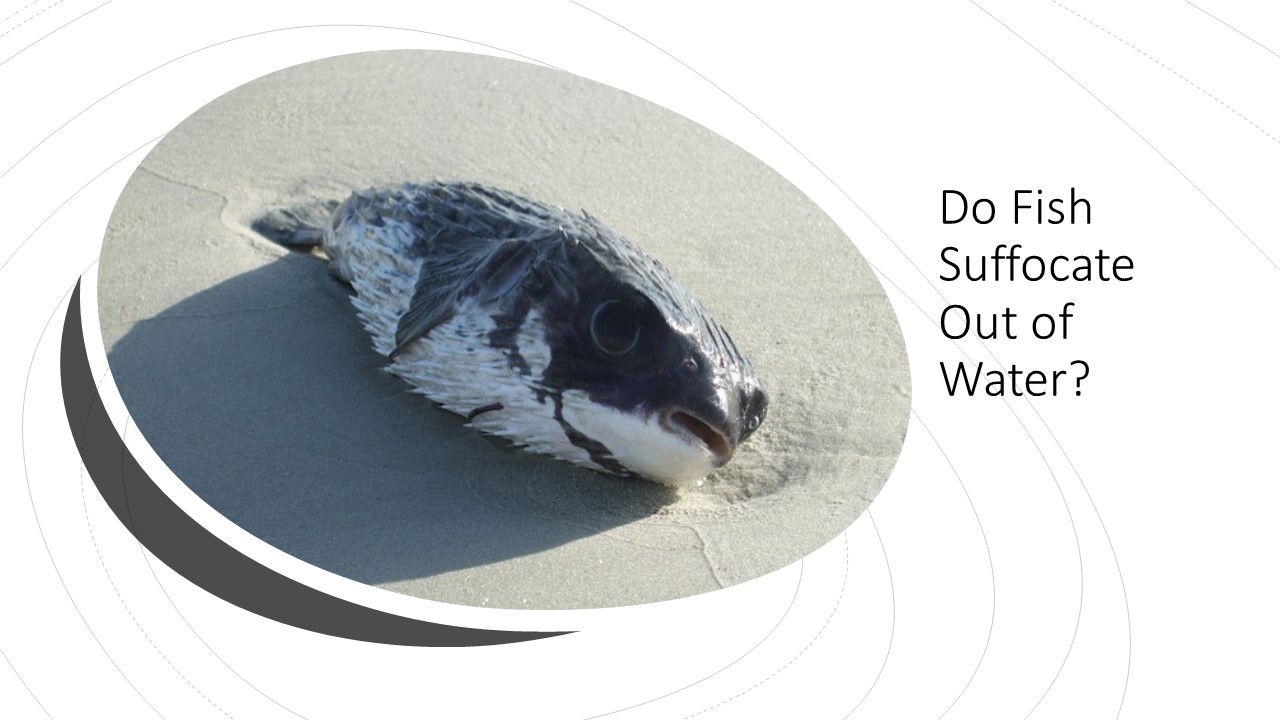Physical Address
304 North Cardinal St.
Dorchester Center, MA 02124
Physical Address
304 North Cardinal St.
Dorchester Center, MA 02124


Even though some fish can breathe by inhaling oxygen from the air, most fish suffocate and perish when they are taken out of the water. This is due to the fact that when fish are pulled out of the water, their gill arches collapse, preventing the blood vessels from being exposed to oxygen in the air.
A fish lives its entire life in the water thanks to its breathing system. Fish can breathe air without regularly rising to the surface of the water through small blood arteries dispersed throughout the surface of their gill. That’s how they obtain the oxygen they need to survive from the water, not from the air.
The majority of fish breathe by moving water across their gills. However, a fish can suffocate if its gills are injured or if water cannot pass through them. Since they don’t inhale in the water, they don’t technically drown, but they do pass away through lack of oxygen.
How long can fish stay out of the water before they die will vary depending on the fish species? Some species will die in seconds, a few minutes, a few hours, or even a few months. The length of the fish battle primarily relies on the fish’s species, habitat, and environment.
Since a fish cannot obtain oxygen the way it is meant to while it is out of the water, its gills would typically curve and collapse. While it is still debatable whether fish experience severe pain, it is known that when they are taken out of the water, they suffocate to death, often in a matter of minutes.
Fish’s gills allow them to absorb oxygen from the water. However, many fish, including those found in mangrove rivulets, have adaptations that allow them to breathe air. According to Andy Turko of the University of Guelph in Ontario, Canada, several fish are amphibious, which means they can normally live outside of water.
A fish can recover if it is found in time, even from a shocking dry state. But the fish’s life depends on how you treat it right away after you find it. The fish must be placed back into the water as soon as possible but in an adequate environment.
They’ll swim more slowly and even eat less frequently. The fish will start to breathe tediously and move their gills more quickly as oxygen levels continue to fall. This is because they are trying so hard to collect enough oxygen from the water by passing more water over their gills.
When a fish is taken out of the water, its gills collapse, condense and are unable to take in enough oxygen to support life. This is referred to as “suffocation” in fish. The vast majority of the fish species will suffocate and die when taken out of the water. Fish still require oxygen to “breathe” even though they can live their entire lives underwater. Most fish cannot breathe the air; they must obtain their oxygen from the water.
Here is an article that I think you may like to read: Are Fish Happy In Tanks? Is It Cruel To Keep Fish In A Tank?